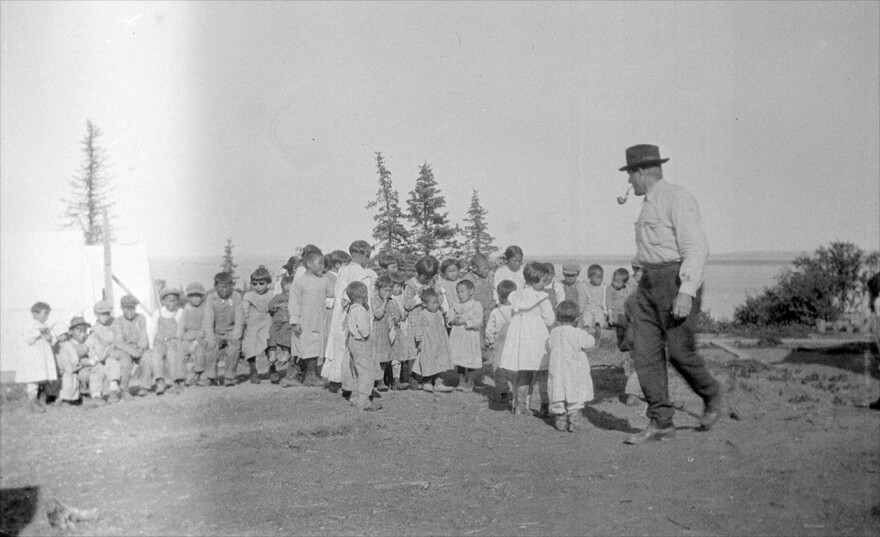The deadly influenza pandemic known as the Spanish Flu, killed millions of people world wide but hit Alaska particularly hard. Thursday evening, an Anchorage lecture will examine the impacts to the Bristol Bay region and how the canneries there helped the local population. The pandemic entered Alaska in 1918 in Nome, western Alaska and Southeast. Despite efforts to keep it out of Bristol Bay, it hit the area in 1919. Historian Katie Ringsmuth of Tundra Vision organized the discussion along with Tim Troll. Troll is the executive director of the Bristol Bay Heritage land trust. He says when he lived in Dillingham, he was given artifacts from the family of a man at the center of the crisis there, Dr Linus French.
TROLL: And in particular looking at some of the photographs after I understood and began to understand the history of the region. Realized that we were looking at photographs of orphans. Orphans from this flu that struck Bristol Bay in 1919. And just from talking to people in Dillingham and in the region, there's hardly a soul that doesn't have somebody in their family that was an orphan. So their family history comes from, starts in many cases, from the orphans who were then transferred to Kanakanak Hospital, still in existence in Dillingham, in 1919. And French was in the middle of it. He was a doctor at Kanakanak. Founded the hospital actually.
RINGSMUTH: This disease came from the trenches of World War I and made its way around the globe. Killed millions of people and then it came to Alaska and it killed more Alaskans per capita than any other place, save Samoa. Just to give you an example, in one week, 90 people were dead and that was just on the Naknek River alone.
TOWNSEND: Ugashik and Naknek were hit hard but Egegik had no cases. Is that true?
RINGSMUTH: Right. According to the reports, it was missed, which is one of the strange mysteries of this disease. Just to give you an example, on one of the written inscriptions, it says "Also on this date, a boat drifted near the Alaska Packers Association's Dime-A-Doe Canary. Three small children suffering from influenza came to the beach and reported that two men were dead on the boat. The bodies were given burials and the children taken to the Alaska Packers Association's Naknek hospital where they recovered and the boat was towed to the canneries.
TOWNSEND: Tim, I wanted to ask about the involvement of the canneries. How dd they help in this tragedy?
TROLL: Commercial fishing in Brostol Bay had already been going on for about 40 years so it was an entrenched industry. And a cannery was like a small town and every spring they'd load up the boats from Seattle, Bellingham, San Francisco and come north. And typically along with that would be doctors and nurses, basically to serve the cannery workers but also the local Natives and the villages that were around. So when they arrived in May of 1919, the flu was already there. The fear is that it would come in with them, but unfortunately, it was already there. And the only government presence that was there at the time was the hospital at Kanakanak, now Dillingham. But they were dealing with the problem themselves. They couldn't respond any better. Dr. French himself was sick with the flu; the nurses were sick with the flu. And despite pleas to help, they really couldn't so the cannery, in this case the Alaska Packers Association, which was the dominant canning outfit in Bristol Bay at the time, they were really logistically capable of dealing with it. And to their credit they did.
RINGSMUTH: And one of the projects that I'm working on with Bob King and the National Park Service is to try and list the hospital at Naknek on the National Register of Historic Places as a building that can tell this story.
Katie Ringsmuth and Tim Troll will discussthe influenza pandemic in Bristol Bay at the Mountain View library in Anchorage tomorrow evening. Free flu shots will be given starting at 5 pm, the presentation begins at 6:30.


